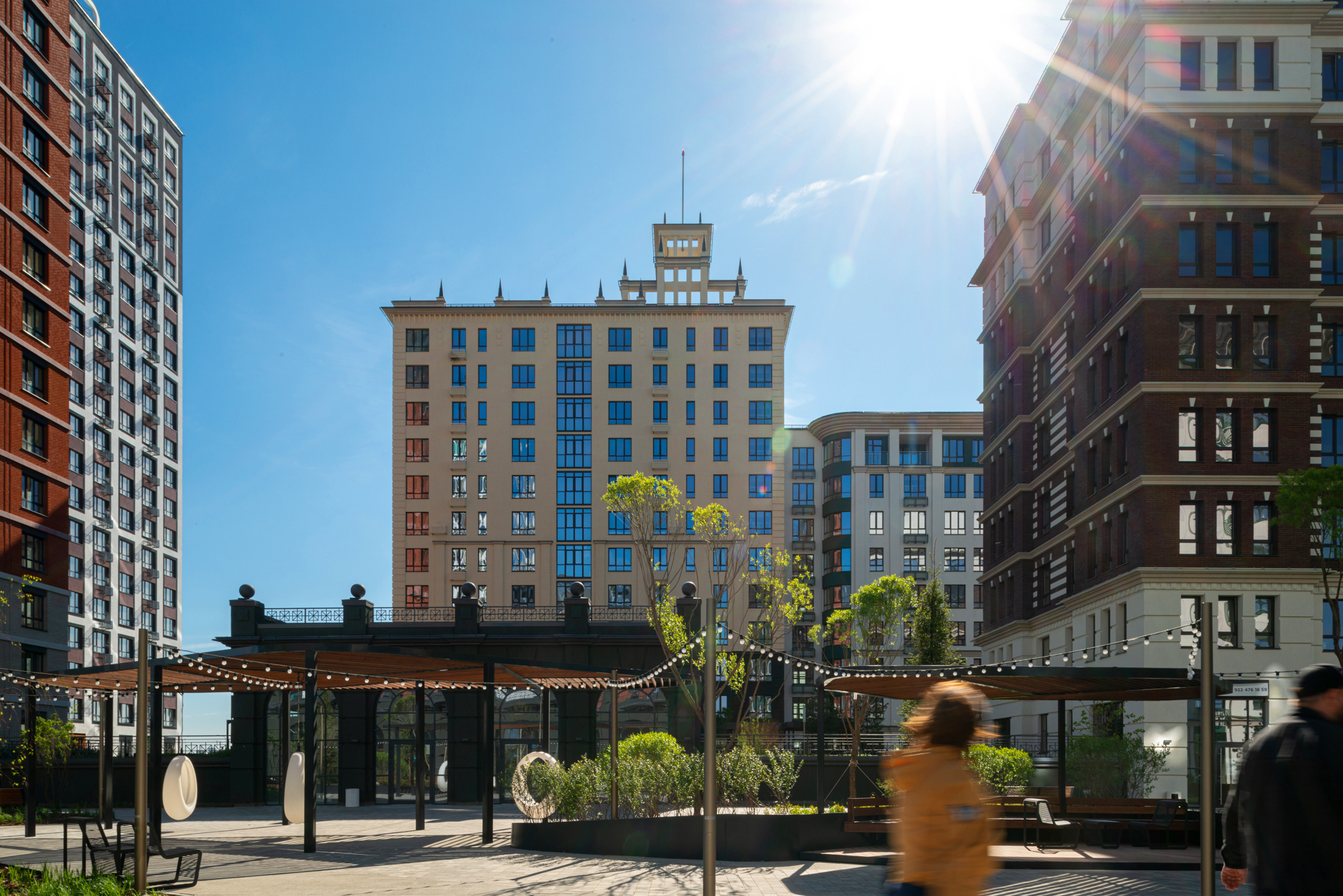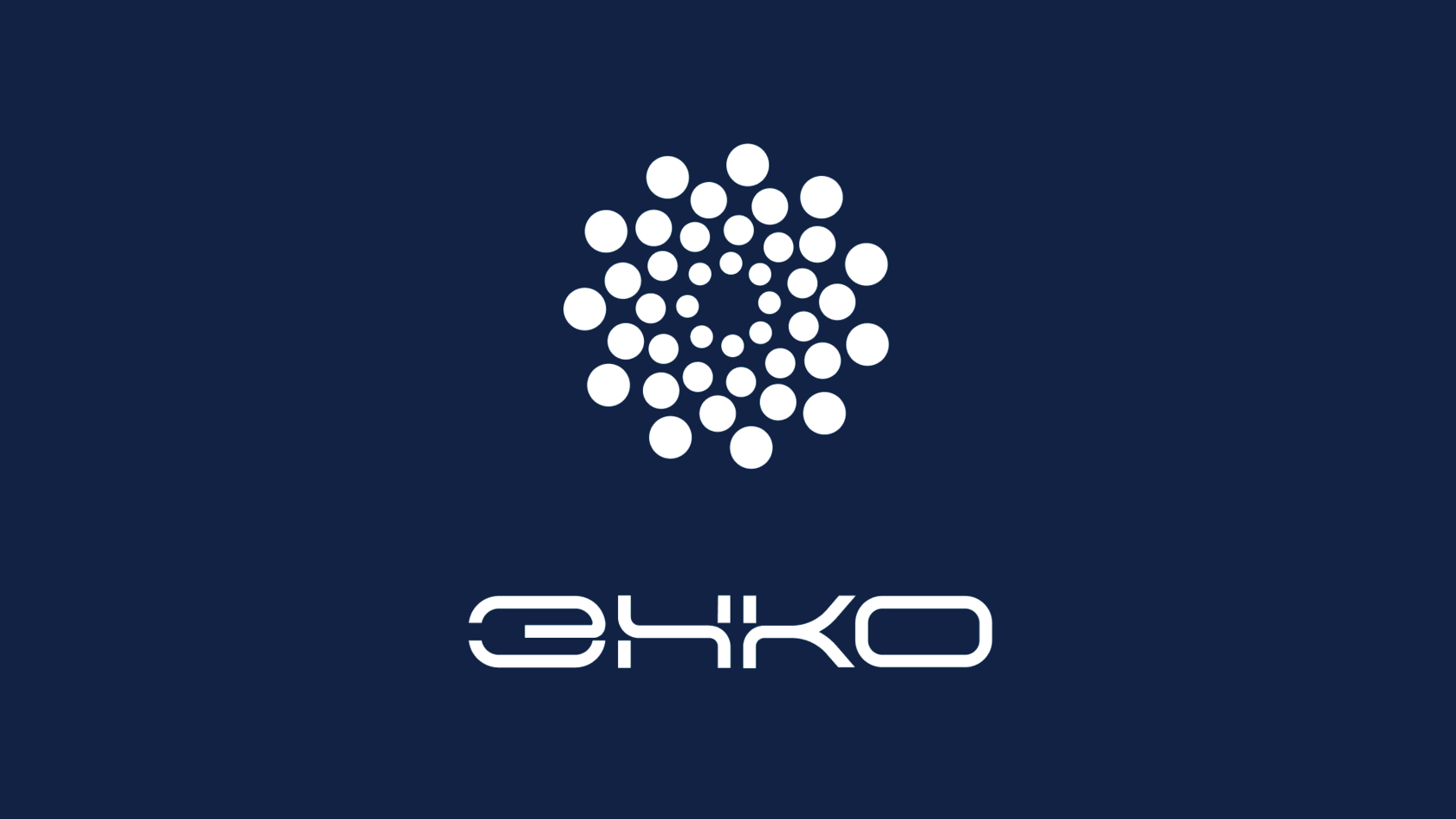




Keep this story going! Share below!
ENKO is a real estate development company based in Tyumen, Russia that provides a full-cycle approach — from project design and engineering to building and commissioning. Its business model integrates coordinated partnership, the company offers a complex of innovations, aligning with several United Nations Sustainable Development Goals (SDGs). The innovations can be divided into two groups: the first group helps with sustainability (SDG 13 –– Climate Action and SDG 12 — Responsible Consumption and Production), while the second group allows for faster construction of houses (SDG 9 –– Industry, Innovation and Infrastructure and SDG 11 –– Sustainable Cities and Communities). ENKO also supports other SDGs like SDG 13 by reducing CO₂ emissions and implementing low-carbon technologies, the company enables scrap separation and uses BIM modeling to optimize resource use and minimize waste (SDG 12), through the use of metal-frame construction, ENKO accelerates industry development (SDG 9) and contributes to SDG 11 by making housing more affordable and fostering inclusive urban development.
Blending cutting-edge construction technologies with a deep commitment to environmental responsibility, ENKO is redefining what it means to build for the future — creating not just homes, but a smarter, cleaner urban landscape.
ENKO’s contribution to sustainability is reinforced through its partnership with SIBUR (a petrochemical company). ENKO implements advanced materials such as fiber-reinforced concrete, polystyrene-based insulation (as an alternative to mineral wool), high-performance facade systems and insulated multi-layer concrete panels. These polymer-based solutions help to reduce greenhouse gas emissions across the entire building lifecycle (SDG 13 — Climate Action).
ENKO also utilizes Building Information Modeling (BIM) to optimize resource use and minimize waste. By integrating all design and engineering data into a single digital model, BIM helps to detect technical clashes early, such as conflicts between structural and engineering systems. The use of 5D modeling further improves cost accuracy, while real-time tracking of material usage during construction supports more efficient planning and resource management — aligning with SDG 12 (Responsible Consumption and Production). Additionally, ENKO practices separate waste collection on-site to further reduce its environmental footprint.
As part of its collaboration with Severstal (mining and metallurgical company), ENKO also leverages metal-frame construction to make housing more affordable, directly supporting SDG 11 (Sustainable Cities and Communities). By adopting building innovations, ENKO shortens construction timelines and accelerates infrastructure development (SDG 9 Industry, Innovation and Infrastructure).
ENKO is redefining housing by merging speed, affordability and sustainability into a scalable model for resilient urban growth.

ENKO’s ecological transformation was a strategic decision — not a reactive market move. In a highly competitive construction sector, the company sought not just to survive, but to lead by building a long-term, sustainable advantage. “We understand that sustainable development is not just a trend, but a necessity for the future of the entire industry,” says Roman Demchuk, Deputy Director of Construction.
The company’s commitment to environmental responsibility emerged in response to growing pressures: stricter emissions regulations, rising material costs, and the need to reduce its carbon footprint. Rather than seeing these challenges as constraints, ENKO viewed them as opportunities for innovation.
To scale its ESG efforts, ENKO entered into a landmark agreement with petrochemical giant SIBUR in March 2025. Under this partnership, SIBUR supplies ENKO with polymer-based construction materials that come with offset carbon footprints — using verified carbon units. These carbon-neutral materials help ENKO lower its environmental impact from the outset of each project.
In parallel, ENKO also partnered with Severstal, aiming to reduce construction time. Faster builds mean less energy consumption on-site and less disruption to local environments.
“We are at an early stage of deploying eco-solutions. But we already see that the future belongs to a responsible approach — not just to materials, but to the very principles of construction,” says Roman Demchuk.
ENKO’s approach is more than a set of green technologies. It represents a rethinking of the entire development model — one that unites mission, innovation and economic efficiency in pursuit of a more sustainable future.
ENKO’s integrated construction model delivers measurable environmental and economic impacts. In the long term, the use of eco-materials significantly reduces emissions. For example, polystyrene facade insulation cuts greenhouse gas emissions during building operation by up to 78%. Polymer pipes lower the carbon footprint across their entire lifecycle. Replacing natural sand in concrete with polymer waste could save up to 820 million tons of sand annually and reduce CO₂ emissions.
In the short term, BIM helps ENKO avoid design errors, material waste, and delays. It enables early clash detection, precise cost modeling and better coordination between teams — minimizing rework and streamlining construction. Moreover, in the long term, this digital approach supports scalable, efficient planning and reduces total lifecycle costs.
Metal frame construction, in the short term, boosts efficiency by lowering project budgets by up to 10% and shortening construction time by nearly 30%. For example, a 17-story building can be completed in 15 months instead of 21–22. Additionally, ENKO practices separate on-site waste collection, which, in the long term, reduces landfill use and promotes sustainable waste management. Together, these initiatives position ENKO as a pioneer of responsible, future-ready urban development.
ENKO’s sustainable model delivers real business advantages. Construction timelines drop by 30 – 40%, thanks to fast metal-frame assembly — even during harsh winters — reducing delays and cutting site maintenance and labor costs. Project costs fall by 10 –15% due to optimized material usage, streamlined logistics and efficient BIM planning that prevents resource overuse. Reliable supply chains, built through partnerships with SIBUR and Severstal, ensure access to high-quality, eco-materials at consistent prices while protecting against disruptions. The enhanced appeal of ENKO’s projects stems from this blend of environmental responsibility and modern technology — making them attractive to sustainability-conscious investors and end-users alike.
Strong long-term partnerships reinforce ENKO’s innovation and uphold accountability across the project lifecycle. As Roman Demchuk explains: “Earlier it was simpler: old windows and wooden doors allowed buildings to ‘breathe’ naturally, but now tighter seals demand balanced ventilation. For green technologies to truly work, their ecological efficiency must go beyond mere energy savings.“
This balance of economic efficiency and environmental consciousness creates real value for everyone involved.
ENKO’s impact extends beyond buildings and enters communities. On the environmental front, the company drastically reduces carbon emissions at both production and operational stages. Carefully insulated facades, thoughtful ventilation, and LED lighting significantly cut energy use. BIM-driven planning minimizes waste and corrects mistakes before construction begins. Socially, ENKO increases housing accessibility, fosters inclusive urban environment, and generates employment in a tech-forward construction sector.
Reflecting on their model’s replication potential, Roman Demchuk notes: “Our technologies can and should be scaled across the industry.”
ENKO is not only advancing its ESG agenda but also shaping a new construction culture—more responsible, technical and sustainable. This both involves the population and the society as well as the employees, who by acquiring the eco-oriented business model can later on implement the green initiatives in their everyday life, changing the pattern of living as well as their mindset.
Get stories of positive business innovations from around the world delivered right to your inbox.

ENKO is one of the leading developers in Tyumen city and the Tyumen region. The company offers apartments both in the city center and in newly developing promising areas. ENKO promotes a modern concept of comfortable living: thoughtfully designed layouts, well-maintained grounds with a high level of security, and its own infrastructure within residential complexes.